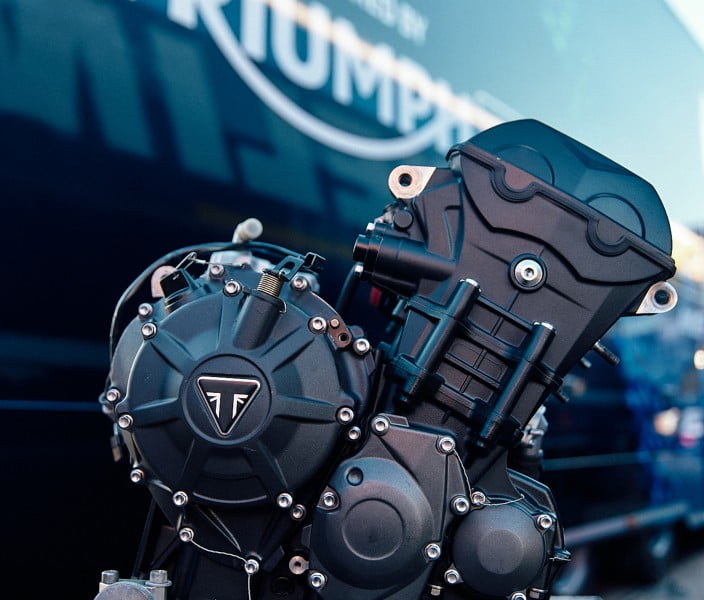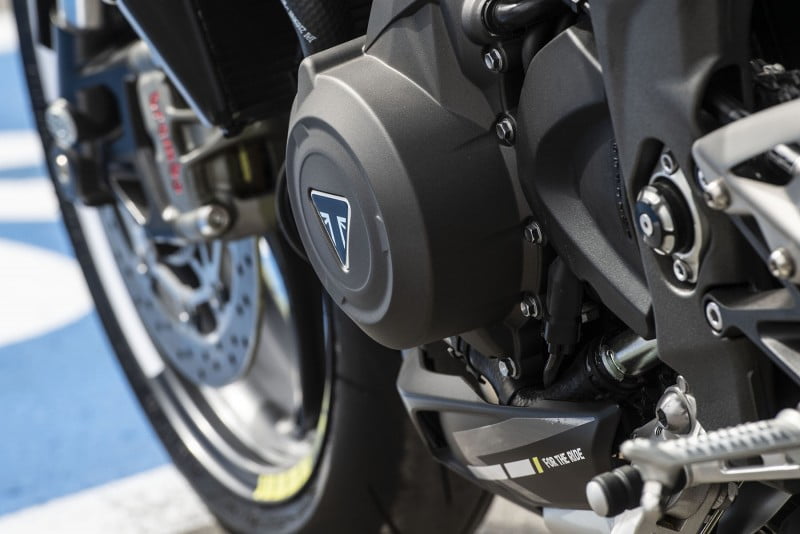Triumph is working on a new, greener fuel testing program at the R&D center at its headquarters in Hinckley, UK. The project, established in collaboration with Dorna, has the main objective of making a good transition to E40 fuel during the 2024 season of the Moto2 World Championship to make the jump to E100 in 2027. A new stage for the company British aiming to offer not only the best performance of its engines in competition but also to transfer this development to its production models to achieve a lower environmental impact.
The MotoGP World Championship confirmed a little less than a month ago its future plans to increase the sustainability of the competition, thus starting a new path in the search for a competition with zero carbon emissions in 2027. These These objectives require close collaboration with the manufacturers and suppliers of the world championship and, naturally, Triumph, as the exclusive engine supplier for the Moto2 category, has already put its machines in motion to achieve this ambitious objective.
To date, sustainable fuel testing has covered all dimensions of Triumph racing engine performance development. These tests help ensure that the new fuel standard is not only competitive, but also maintains the exciting performance of three-cylinder engines in terms of peak power and torque; a performance which, on the track, delights the drivers.

This program to develop more sustainable fuels adds to the Hinckley plant's advances in electric motorcycle technology, embodied in the Triumph TE-1 prototype, and ongoing efforts to reduce carbon and other emissions. gas beyond what is established by current legislation at European and global level. With all these initiatives, Triumph demonstrates its determination to ensure that riders and motorcycle fans around the world can continue to enjoy motorcycling responsibly for many years to come.
Steve Sargent, Triumph product manager, sums up: “Lately, we've been paying special attention to leveraging all the lessons we learn from racing even more for our road bikes; and this, of course, is not only a question of performance, but also of environmental impact. I assure you that all of us at Triumph are delighted to be involved in such important development programs at such a crucial time for the future of motorcycling. »

























